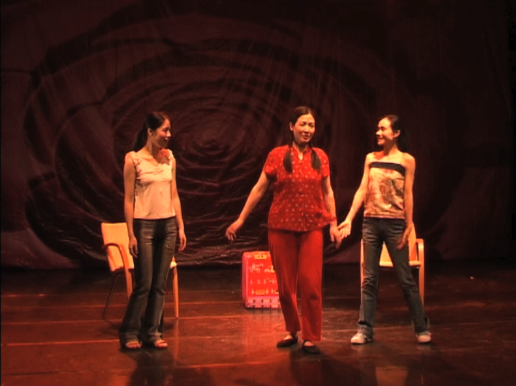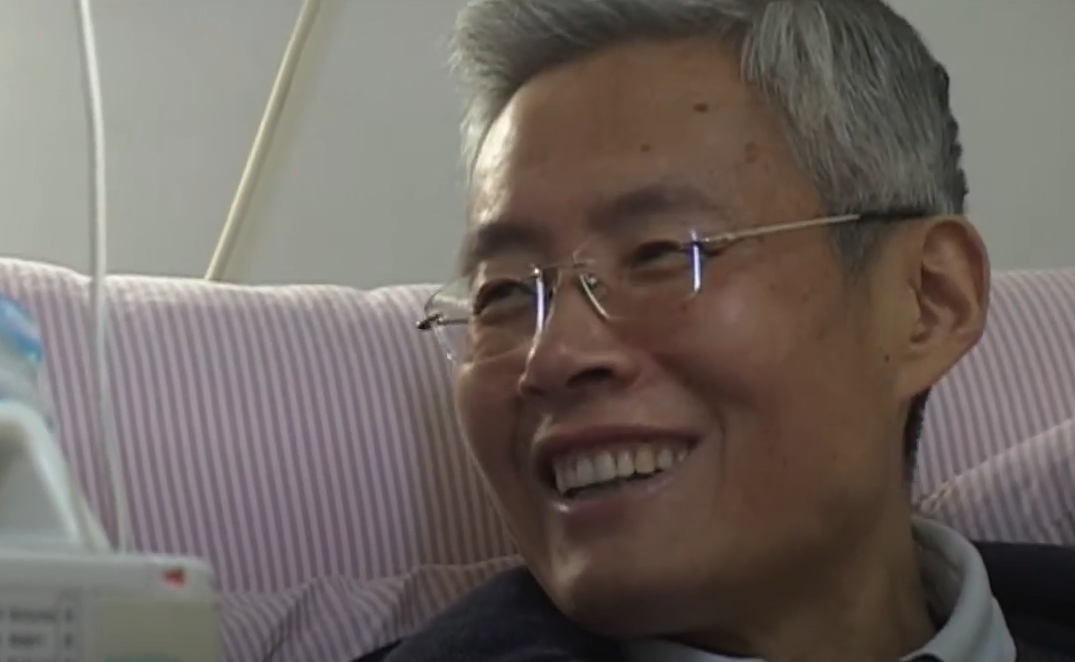Explore the collection
Showing 70 items in the collection
70 items
Film and Video
The Vagina Monologues -- Stories Behind the Scenes
<i>The Vagina Monologues</i> is a pioneering feminist drama created by the American playwright Eva Ensler. In 2003, teachers and students at the Gender Education Forum of Sun Yat-sen University in China adapted the play and added artistic interpretations of Chinese women's gender experience. The adapted play had its first performance at the Guangdong Provincial Art Museum. This documentary records the attitudes of governments across China towards the play as well as women's perceptions of the play and its connection with their personal experiences. It also highlights the current political and cultural ecology of China.
Book
Thirty Years of New China
Tang Degang is a historian and biographer who specializes in oral history. In the latter half of his life, he settled in the United States and taught at Columbia University and the City University of New York. In the field of history, he put forward the "Three Gorges Theory of History", which divides the change of Chinese social system into three major stages: feudalism, imperialism, and civil rule. The book was originally titled <i>Mao Zedong's Dictatorship, 1949~1976</i>, but was renamed <i>Thirty Years of New China </i> when it was released on the mainland.
Film and Video
Tribute to Gao Hua
Gao Hua was a renowned Chinese historian who died of liver cancer in Nanjing in 2011 at the age of 57. During his lifetime, Prof. Gao Hua focused on modern Chinese history. He was an expert in the history of the CCP and Mao Zedong. Several of his books were published overseas, and his book “The Revolutionary Years” was the only one published on the mainland. His masterpiece, “How the Red Sun Rises - The Ins and Outs of the Yan'an Rectification Movement”, was considered a classic work on CCP history when it was published in Hong Kong, but it soon became a banned book. Through this documentary, director Hu Jie records Gao Hua's voice and laughter during his lifetime, expressing the deep feelings of people mourning and commemorating Gao Hua.
Article
Wuhan Diary
This collection of diary entries by Wuhan-based filmmaker and activist Ai Xiaoming showcases her life during the early months of the COVID-19 pandemic, from February to March 2020. In these diary entries, Ai shares the daily challenges which many Chinese people grappled with, as well as their hopes and questions for the government and Chinese society at large. Her diary also examines problems regarding the expanding powers of the Chinese government. The first entry of Ai’s diary was published in English by the New Left Review, which can be found here:
https://newleftreview.org/issues/ii122/articles/xiaoming-ai-wuhan-diary.
Film and Video
Xu Zhiyong
Chinese human rights activist Dr. Xu Zhiyong, twice imprisoned for his longstanding advocacy of civil society in China, was sentenced to 14 years in prison by the Chinese government in April 2023. The documentary by independent director Lao Hu Miao was filmed over a four-year period, beginning with the seizure of the Public League Legal Research Center, which Xu Zhiyong helped found in 2009, and ending with Xu's first prison sentence in 2014.
Book
Yangmou - The Beginning and End of the Anti-Rightist Movement
The revised edition of this book was published by *Open Magazine* in Hong Kong in 2007. The first edition was published in 1991 and was revised and reprinted twice, in 1993 and 1995. The book collects a large amount of information about the anti-rightist movement, including survey interviews with victims of the anti-rightist movement and their relatives and friends. It is a complete record of the anti-rightist movement, which comprehensively analyzes and discusses the whole process of the anti-rightist movement, as well as its ins and outs, causes and consequences. Regarding the number of "rightists," the statistics of the CCP authorities had been limited to 550,000 people. According to Ding Lyric's analysis, there were about 1.2 million people who were labeled as "rightists" in the Anti-Rightist Movement.
Book
Yangtze Yangtze
In March 1989, the book Yangtze Yangtze was published by the Guizhou People's Publishing House just as the Tiananmen student protests were about to begin in Beijing. The book fed into this intellectual ferment, challenging the technocratic reasons for the Three Gorges Dam, which eventually would dam the Yangtze River in the name of flood control and electrical power generation.
The book was edited by the journalist Dai Qing, the daughter of a well-known Communist Party activist and leader. The book challenged the project's decision-making process, with a broad array of scientists, journalists, and intellectuals arguing that it was not democratic and did not take into account all viewpoints. It was widely read in China and translated into foreign languages.
After the Tiananmen protests were violently suppressed, Dai Qing was arrested and imprisoned for ten months in Qincheng Prison as an organizer of the uprising. Yangtze Yangtze was criticized as “promoting bourgeois liberalization, opposing the Four Fundamental Principles (of party control), and creating public opinion for turmoil and riots.” The book was taken off the shelves and destroyed, with some copies burned. It became the first banned book resulting from the decision-making process of the Three Gorges Project.
The book is banned in China. The English-language edition can be read online at Probe International: https://journal.probeinternational.org/three-gorges-probe/yangtze-yangtze/.
Film and Video
Zhang Zhan Video Series of COVID-19 Outbreak in Wuhan
On 23 January 2020, the Chinese government imposed a lockdown in Wuhan. On February 1, Zhang Zhan took a train from Shanghai to Wuhan. From then until her arrest by the Shanghai police on May 14, Zhang Zhan continued to document the situation in Wuhan on video at the frontline of the pandemic. On February 7, she launched a YouTube channel under her real name and released her first video, “Claiming the Right to Freedom of Expression,” in memory of Dr. Li Wenliang and in solidarity with citizen journalists Chen Qiusi and Fang Bin, who had been taken away for reporting on COVID-19. She said in the video: “If Chinese citizens still do not have the right to freedom of expression,then we are all Li Wenliang." On the same day, Zhang Zhan received a phone call from Shanghai's state security agency threatening to quarantine her if she continued to speak out online, but she did not give in. By the time she was arrested, Zhang Zhan had posted 122 videos on <a href=”https://www.youtube.com/@%E5%BC%A0%E5%B1%95-y3p/featured”>her YouTube channel</a>. In the videos, she traveled around Wuhan at the height of COVID-19, documenting empty streets, the roar of funeral home incinerators late at night, the desperation of patients with no place to turn for medical care, the arbitrary deprivation of residents’ freedom of movement, and the chaotic and hypocritical nature of government policies. These videos show the world the reality of Wuhan in the early days of the outbreak, and are a precious record of history.









